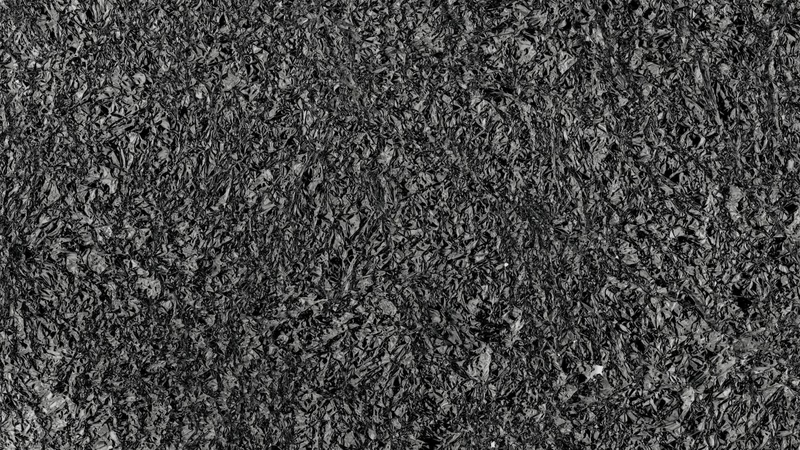
Petroleum coke production in Middle East refineries.
Countries in the Middle East region, such as Saudi Arabia, Iran, Iraq, Kuwait, and the United Arab Emirates, have substantial oil refining capacities. These refineries produce petroleum coke as a byproduct during the refining process. The exact production rate of petroleum coke in West Asia can vary over time based on factors such as oil production levels, refinery utilization rates, and market demand. The production rate of petroleum coke (petcoke) in West Asia (Middle East) varies by country and is influenced by the region's significant oil refining capacity. Petcoke is a byproduct of the oil refining process, and its production is closely tied to the operation and capacity of refineries in the region.
The primary producers of petroleum coke in the Middle East include major oil-producing countries like Saudi Arabia, Iran, the United Arab Emirates (UAE), and Kuwait. These countries have extensive refining infrastructure, resulting in substantial production of petcoke. As the world's largest oil company, Saudi Aramco operates multiple refineries. The production of petcoke in Saudi Arabia is significant, with estimates suggesting annual production in the range of 5 to 10 million metric tons. Iran's refining capacity also results in considerable petcoke production, though exact figures are harder to ascertain due to varying output levels. Estimates range from 1 to 3 million metric tons annually.
In the Middle East, 950,000 tons of petroleum coke were produced that year, with Kuwait ranking first in the region. The world's petcoke consumption is 76 percent in the aluminum industry, 5 percent in the steel industry and the rest in other industries. Petroleum coke production project is one of the knowledge-based projects in Iran, which has been implemented with the aim of achieving the relevant technology and in order to meet the important part of the needs of the country's aluminum and steel industries. The raw material required for the production of coke will be supplied from the bottom of the distillation tower in the vacuum of Abadan refinery and CSO of Arak refinery.
The UAE has modern refining facilities that contribute to petcoke production. Annual production is estimated to be around 1 to 2 million metric tons. Kuwait's refining industry produces significant volumes of petcoke, estimated at approximately 1 to 2 million metric tons per year. In the process of producing petroleum coke, the raw material (refinery vacuum baton) is converted into more valuable materials such as petroleum coke and liquid products (naphtha, diesel, LPG). The current demand of the country's aluminum industry for coke is 200,000 tons per year, a large part of which is currently supplied through imports, and due to the growth of aluminum production in the country, the need for coke will also increase. World petroleum coke production in 2014 was 24.7 million tons, with China alone accounting for 49% of world production.
Combining the estimates from these key producers, the total production of petroleum coke in the Middle East can be approximated to be in the range of 8 to 15 million metric tons annually. This broad estimate accounts for variations in refinery outputs and operational changes. Expansion and modernization of refineries can increase petcoke production. The type of crude oil processed affects the volume of petcoke produced. Demand for petcoke in industries such as cement and aluminum smelting can drive production levels. Stricter environmental regulations may impact production practices and output.
-
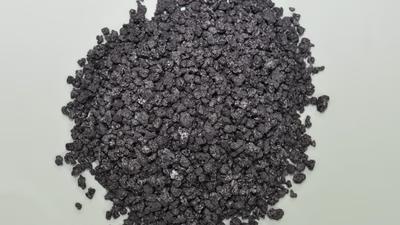
Petroleum coke (petcoke) is a carbon-rich solid derived from oil refining, widely used as fuel in various industries due to its high calorific value, which ranges from 7,500 to 8,500 kcal/kg. Its efficiency makes it suitable for processes requiring substantial heat, such as cement kilns and power plants. Petcoke is often more cost-effective than other fossil fuels like coal or natural gas, appealing to industries aiming to lower fuel expenses. Additionally, it serves in producing electrodes for aluminum and steel industries and can enhance the combustion efficiency of blended fuels. However, the use of petcoke presents challenges. Environmental regulations are tightening, potentially limiting its use and necessitating investments in emission control technologies. Public opposition arises from health and environmental concerns linked to petcoke combustion, which releases significant CO₂ and harmful pollutants like sulfur oxides and nitrogen oxides. These emissions can lead to air quality issues and contribute to climate change.
Furthermore, petcoke"s high sulfur content poses risks of acid rain formation and respiratory problems. Industries must also manage the ash produced during combustion, which requires additional infrastructure for proper disposal. Understanding the quality specifications of petcoke is crucial for effective utilization; poor choices can lead to inefficiencies and financial losses. "
-
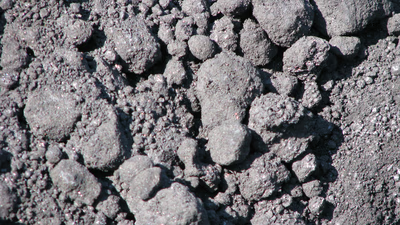
Petroleum coke, with a carbon content of 85% to 95%, serves multiple industrial applications due to its high calorific value and efficiency as a fuel source. It is primarily utilized in steelmaking, aluminum smelting, and the production of carbon-based products. Calcined petroleum coke is particularly valuable for its electrical conductivity, making it essential for carbon and graphite electrodes in aluminum production. Additionally, petroleum coke is used in power generation and cement kilns, where its heat-generating properties are advantageous. The material can be categorized into raw (green) and calcined types; the latter is preferred for its lower sulfur and ash content. In the cement industry, petroleum coke"s sulfur content eliminates the need for additional sulfur in cement production. Furthermore, it acts as a carbon source in alloy industries and is involved in various high-temperature industrial processes. Its availability as a byproduct of petroleum refining makes it an economical choice for many sectors.
The ability to modify petroleum coke through calcination enhances its quality for specialized applications, while blending with other materials can optimize its properties. Overall, petroleum coke stands out as a cost-effective alternative to traditional fuels and carbon sources across diverse industries. "
-
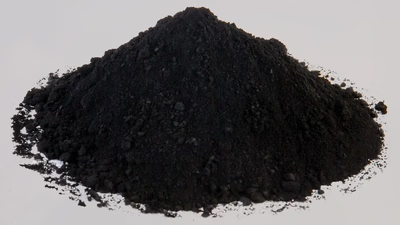
Petroleum coke, or petcoke, is a carbon-rich solid produced during the oil refining process. It results from the thermal decomposition of heavy crude oil into lighter fractions like gasoline and diesel. Composed of 85% to 95% carbon, petcoke serves as a valuable fuel source for industrial applications requiring high heat. The production process involves coking, which converts heavy petroleum residues into gases, liquids, and solids with high carbon content. There are two main types of petroleum coke: calcined and fuel-grade. Calcined coke undergoes further processing to enhance purity and is primarily used in aluminum production and steelmaking. Fuel-grade coke is less pure and mainly utilized as fuel in power plants and cement kilns. The demand for petroleum coke is driven by increasing oil consumption and the need for efficient energy sources in various industries.
Its global trade involves bulk transportation, making it a significant commodity in the market. The physical properties of petcoke determine its applications across sectors such as energy generation, metal smelting, and cement manufacturing.
-
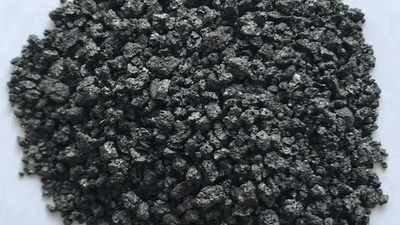
The largest producers of petroleum coke (petcoke) are primarily countries with significant oil refining capabilities, including the United States, China, India, Saudi Arabia, Brazil, Russia, Canada, and the European Union. Major oil companies such as ExxonMobil, Sinopec, and Saudi Aramco are key players in this sector. The U. S. leads in refining capacity and petcoke production due to its numerous refineries operated by companies like Chevron and BP. China’s industrial sector drives its high petcoke output through state-owned enterprises like Sinopec. India is rapidly expanding its refining capacity with Reliance Industries and Indian Oil Corporation as major contributors. Saudi Arabia"s vast oil reserves support substantial petcoke production primarily through Saudi Aramco.
While the Middle East has notable refining operations contributing to global petcoke supply, it does not lead in overall production compared to the U. S. , China, and India. The EU also plays a role in petcoke production with companies like Royal Dutch Shell involved in refining processes that yield petcoke as a byproduct. Other countries such as Brazil and Russia have well-established oil industries that contribute significantly to global petcoke output. "
-

Petroleum coke production in the Middle East is significantly influenced by the region"s oil refining capabilities, with major producers including Saudi Arabia, Iran, Iraq, Kuwait, and the UAE. The production rate varies based on oil output, refinery utilization, and market demand. Saudi Arabia leads with an estimated annual production of 5 to 10 million metric tons of petcoke, while Iran produces between 1 to 3 million metric tons. Kuwait also contributes significantly with similar production levels. The total petroleum coke output in the Middle East is estimated to range from 8 to 15 million metric tons annually. The aluminum industry is the largest consumer of petcoke globally, accounting for 76% of its usage. As demand for aluminum rises in the region, so does the need for petcoke. Modernization and expansion of refineries are expected to further boost production rates.
However, environmental regulations may pose challenges to production practices. "





